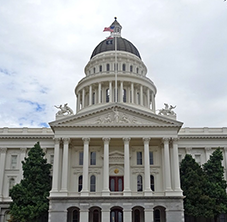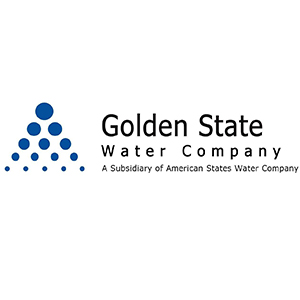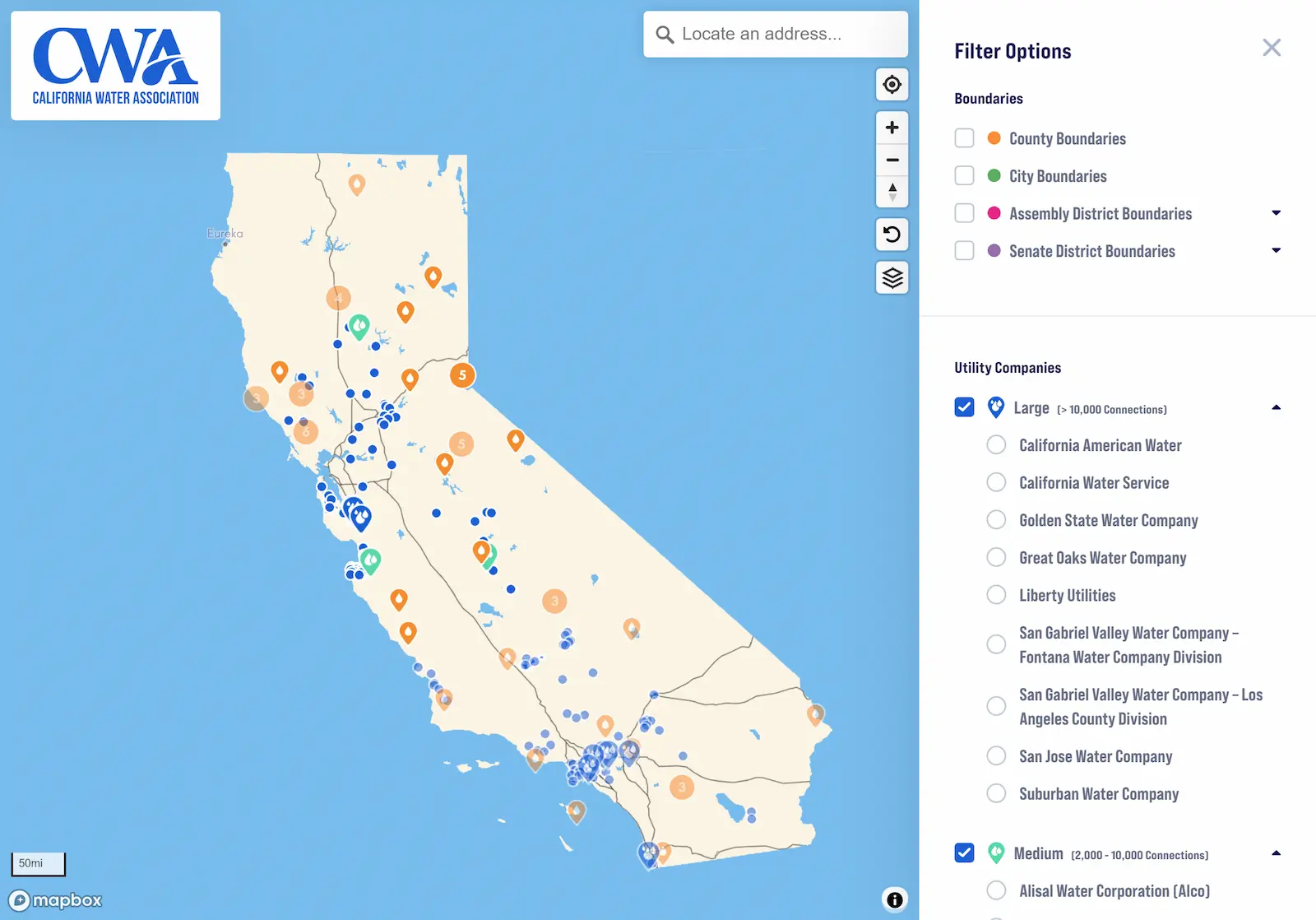The California Water Association (CWA) identified three areas in the Water Code and Public Utilities Code that should be changed to strengthen customer benefits and protections. As a result, CWA is sponsoring three bills in the 2016 session of the California Legislature: AB 1180 (C. Garcia); AB 2874 (Gaines); and SB 1456 (Galgiani).
AB 1180 (C. Garcia):
Currently, the California Public Utilities Commission (CPUC) is required by law to have regulated water utilities set a transaction fee for utility customers paying their monthly bills by credit, debit or prepaid cards. The fee typically ranges from $2.00 to $3.00 per payment. Experience indicates that many customers stop using the online payment portal when confronted with the transaction fee, opting instead to use an alternate payment method that is “free” such as writing a check.
Payment by check or in person is costlier than using a card; however, those costs already are included in base rates with all other operating costs. Therefore, customers who pay their bills with credit/debit cards are effectively paying twice – once in their rates for other forms of payment and again when paying a transaction fee for using a credit or debit card.
As more consumers prefer the convenience of credit and debit cards as their primary method of paying recurring bills, CWA is taking action to rectify this inequity with the assistance of Assembly Member Cristina Garcia in authoring AB 1180. This bill will create a pilot program allowing participating water utilities to waive transaction fees for customers paying by credit and debit card and to collect information on:
- The costs associated with various forms of payment;
- Customer utilization of various forms of payment;
- Customer expectations and satisfaction regarding payment options; and
- The demographic profile of customers and their use of the various forms of payment.
AB 1180 also would direct the CPUC to evaluate water customer bill payment preferences, including the use of credit or debit cards and whether levying a transaction fee on customers paying by credit or debit card is in the public’s interest. The bill passed the California Assembly in late January by a 71 to 3 vote and will be taken up by the Senate in June.
AB 2874 (Gaines)
Assembly Bill 2874, authored by Assembly Member Beth Gaines, seeks to protect investor-owned water companies (IOWC) customers from unwarranted fees and/or other financial requirements imposed by Groundwater Sustainability Agencies (GSAs) formed pursuant to the Sustainable Groundwater Management Act of 2014 (SGMA). Current law requires the CPUC to approve all costs incurred by regulated IOWCs that are being passed on to customers.
Because SGMA authorizes a GSA to impose fees on permitting, groundwater extraction or other activities to fund the costs of a groundwater sustainability program, the regulated IOWCs need to ensure CPUC approval of those fees and expenses, especially when the local agencies have excluded IOWCs from membership in the GSA. AB 2874 will require a GSA to notify the CPUC before imposing or increasing a fee relating to a groundwater basin from which a water utility regulated by the CPUC has rights to extract groundwater to serve its customers.
SB 1456 (Galgiani)
The Drinking Water State Revolving Fund (DWSRF) program has, for nearly 20 years, provided low-interest loans to water utilities of all types for drinking water infrastructure projects. Historically, there have been two ways to secure funds under this program: Proposition 1 for which regulated utilities are eligible; and loan forgiveness for which regulated utilities are eligible under federal rules, but not in California. CWA has worked with Senator Cathleen Galgiani to correct this omission.
SB 1456 would, among other things, authorize financing arrangements for planning and preliminary engineering studies, project design and construction costs, including loan principal forgiveness, to all public water systems, including California regulated IOWCs. The bill specifically provides that any public water system serving a severely disadvantaged community with 200 connections or fewer that does not have the ability to pay back the loan would be eligible for the principal forgiveness provision.
While AB 1180 is a two-year bill, both AB 2874 and SB 1456 were introduced in 2016 and are awaiting their first policy committee hearings.





